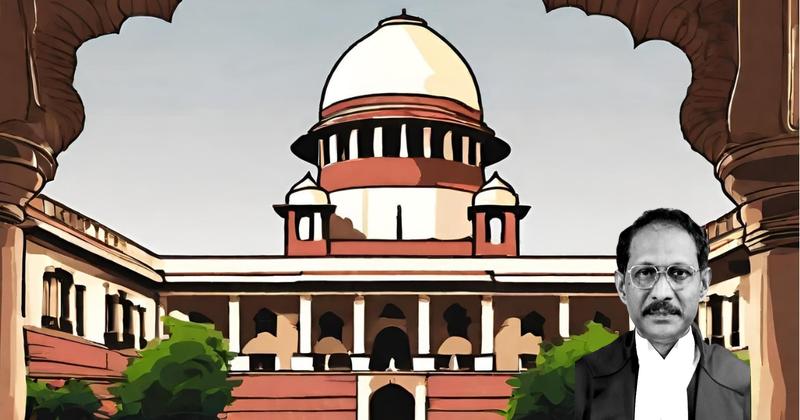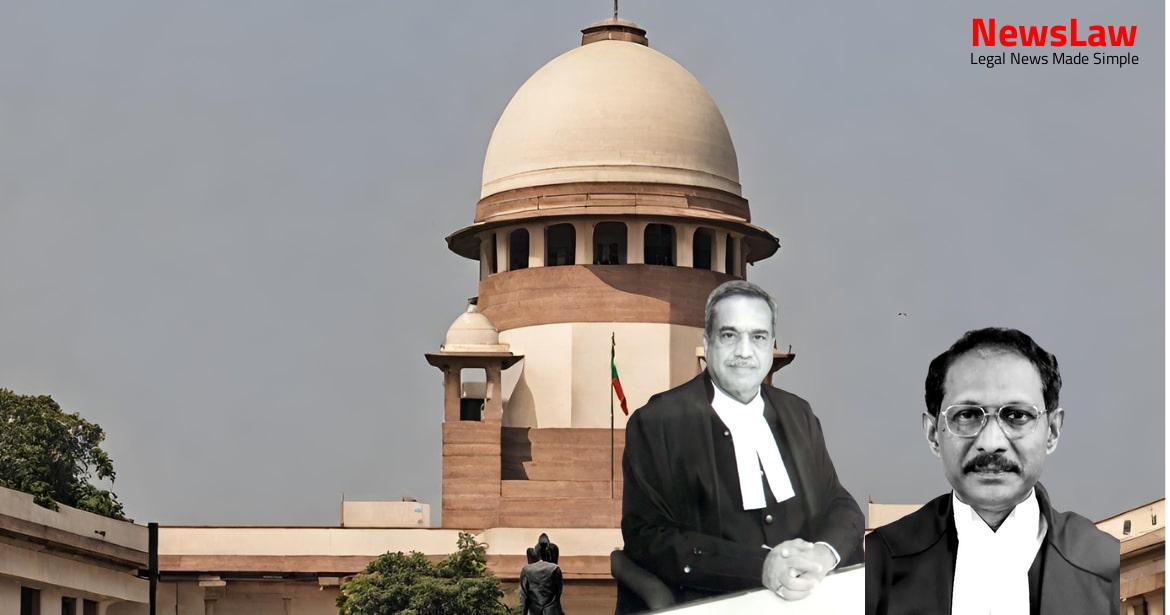However, taking into consideration Regulation 40(1) of the Karnataka Electricity Board Employees Service Regulations, 1997 (hereinafter referred to as the Regulations), which provides that an increment accrues from the day following that on which it is earned, the appellants denied the annual increment on the ground that the day on which the increment accrued the respective employees – original writ petitioners were not in service. reported in 2002(4)
Also Read: https://newslaw.in/case-type/civil/c-a-no-001144-001146-2011/
ALT 550 (D.B.) and relying upon the decisions of other High Courts, the Division Bench of the Karnataka High Court has allowed the appeal and has directed that the appellants to grant one annual increment to the respective employees-respondents by observing that the respective employees as such earned the increment for rendering their one-year service prior to their retirement. It is submitted that the Madras High Court, the Delhi High Court, the Allahabad High Court, the Madhya Pradesh High Court, the Gujarat High Court have taken a contrary view than the view taken by the Full Bench of the Andhra Pradesh High Court, the Kerala High Court and the Himachal Pradesh High Court. It is submitted that it categorically provides that “an increment accrues from the day following that on which it is earned.” It is submitted that therefore, when the right to get the increment is accrued the employee must be in service. 4 It is further submitted by Shri Ahmadi, learned Senior Advocate appearing on behalf of the appellants that the annual increment is in the form of a good service and it is an incentive so that the concerned employee may serve effectively and may render good services.
Ayyamperumal (supra) and the decisions of the Gujarat High Court, the Delhi High Court, the Allahabad High Court, the Madhya Pradesh High Court and the Orissa High Court taking the view that the concerned employees who earned the annual increment for rendering one year service prior to their retirement they cannot be denied the benefit of the annual increment which they actually earned, solely on the ground that they retired on attaining the age of superannuation on the very next day. The short question which is posed for the consideration of this Court is whether an employee who has earned the annual increment is entitled to the same despite the fact that he has retired on the very next day of earning the increment? It is also the case on behalf of the appellants that as the increment is in the form of incentive and therefore, when the employees are not in service there is no question of granting them any annual increment which as such is in the form of incentive.
(Writ A No 13299/2020 decided on 29.06.2021) ; the Madhya Pradesh High Court in the case of Yogendra Singh Bhadauria and Ors. 17715/2020 decided on 30.07.2021) ; and the Gujarat High Court in the case of State of Gujarat Vs. In a given case, it may happen that the employee earns the increment three days before his date of superannuation and therefore, even according to the Regulation 40(1) increment is accrued on the next day in that case also such an employee would not have one year service thereafter. 5
Now, so far as the submission on behalf of the appellants that as the increment has accrued on the next day on which it is earned and therefore, even in a case where an employee has earned the increment one day prior to his retirement but he is not in service the day on which the increment is accrued is concerned, while considering the aforesaid issue, the object and purpose of grant of annual increment is required to be considered. Therefore, the moment a government servant has rendered service for a specified period with good conduct, in a time scale, he is entitled to the annual increment and it can be said that he has earned the annual increment for rendering the specified period of service with good conduct. The scheme, taken cumulatively, clearly suggests that appointment of a central government servant is a progressive appointment and periodical increment in pay from a minimum to maximum is part of the pay structure.
Increment in pay is thus an integral part of progressive appointment and accrues from the day following which it is earned.” (para 23)
Also Read: https://newslaw.in/case-type/civil/acquisition-of-land-and-deemed-lapse-under-the-act-2013/
“Annual increment though is attached to the post & becomes payable on a day following which it is earned but the day on increment which accrues or becomes payable is not conclusive or determinative. It would thus be wholly arbitrary if the increment earned by the central government employee on the basis of his good conduct for a year is denied only on the ground that he was not in employment on the succeeding day when increment became payable.” “In the case of a government servant retiring on 30th of June the next day on which increment falls due/becomes payable looses significance and must give way to the right of the government servant to receive increment due to satisfactory services of a year so that the scheme is not construed in a manner that if offends the spirit of reasonableness enshrined in Article 14 of the Constitution of India. The scheme for payment of increment would have to be read as whole and one part of Article 151 of CSR cannot be read in isolation so as to frustrate the other part particularly when the other part creates right in the central government servant to receive increment.
This cannot be a valid ground for denying increment since the day following the date on which increment is earned only serves the purpose of ensuring completion of a year’s service with good conduct and no other purpose can be culled out for it.
The scheme for payment of increment would have to be read as whole and one part of Article 151 of CSR cannot be read in isolation so as to frustrate the other part particularly when the other part creates right in the central government servant to receive increment. As observed hereinabove, to interpret Regulation 40(1) of the Regulations in the manner in which the appellants have understood and/or interpretated would lead to arbitrariness and denying a government servant the benefit of annual increment which he has already earned while rendering specified period of service with good conduct and efficiently in the last preceding year.
The entitlement to receive increment therefore crystallises when the government servant completes requisite length of service with good conduct and becomes payable on the succeeding day. 111/2020 decided on 22.11.2022) and the Himachal Pradesh High Court in the case of Hari Prakash Vs.
Also Read: https://newslaw.in/case-type/civil/c-a-no-003481-003481-2022/
No 149091/2022 stands disposed of in terms of the above.
Case Title: THE DIRECTOR (ADMN. AND HR) KPTCL Vs. C.P. MUNDINAMANI (2023 INSC 352)
Case Number: C.A. No.-002471-002471 / 2023



